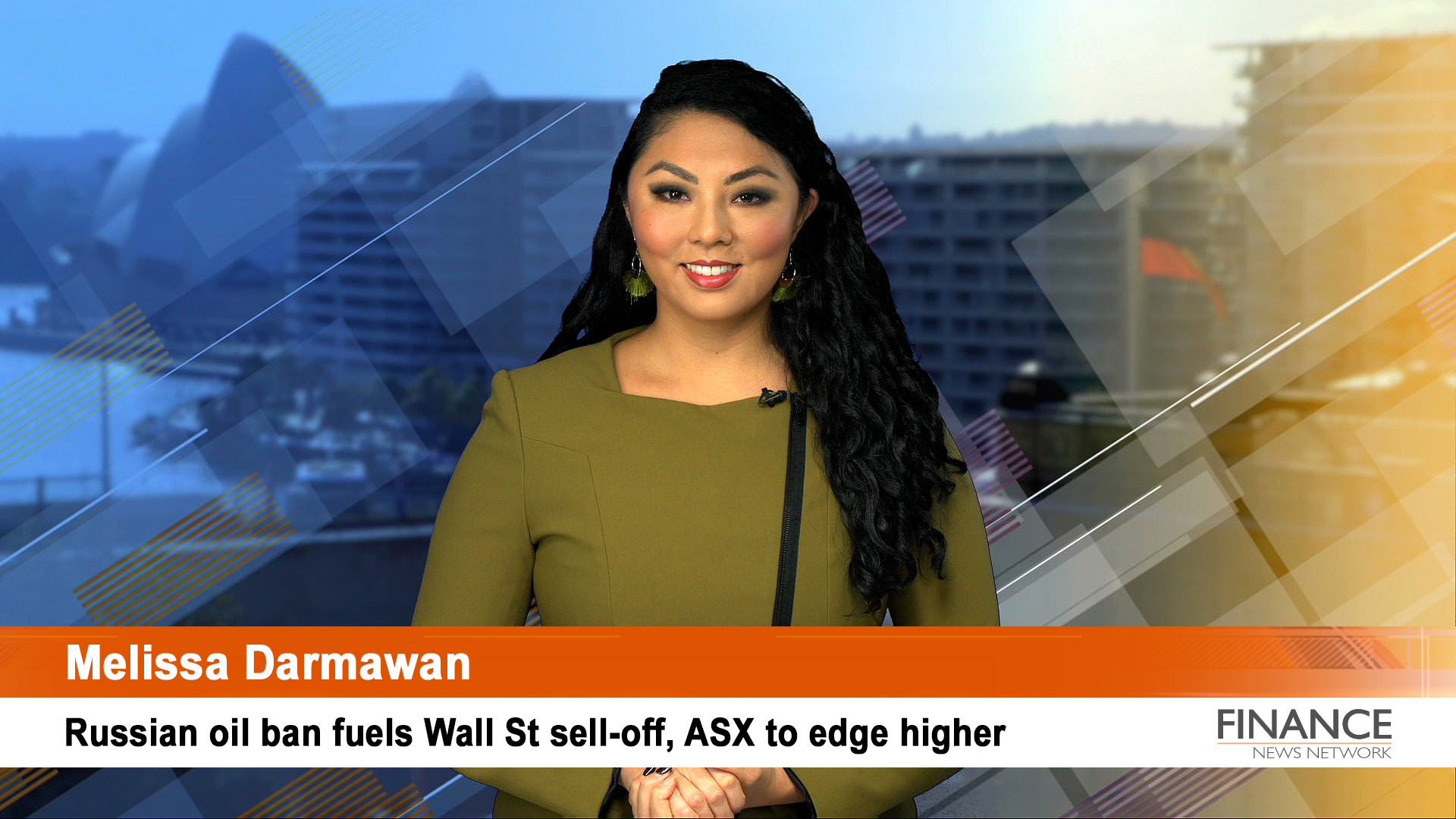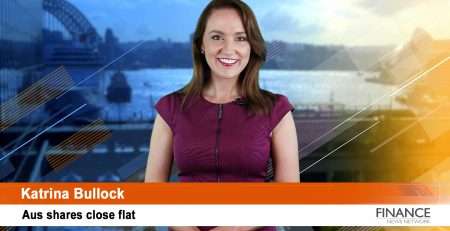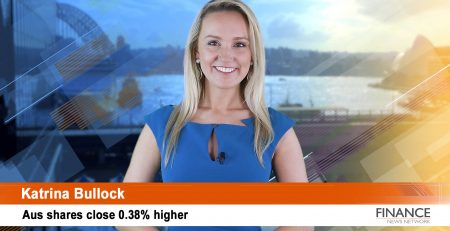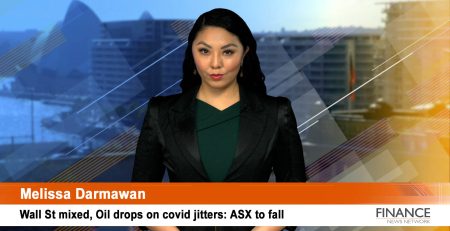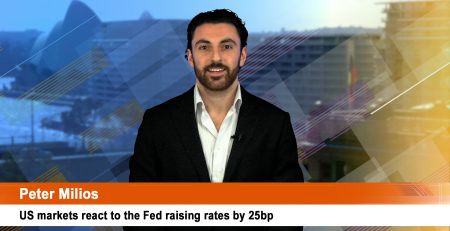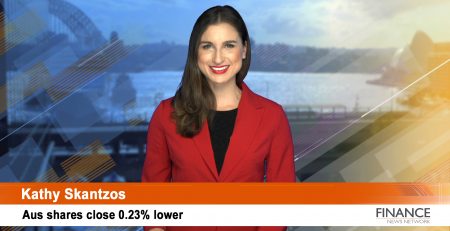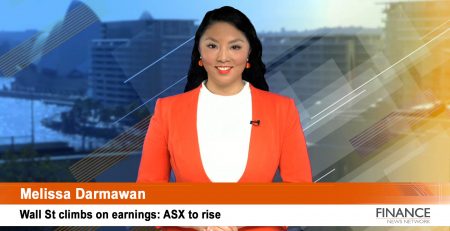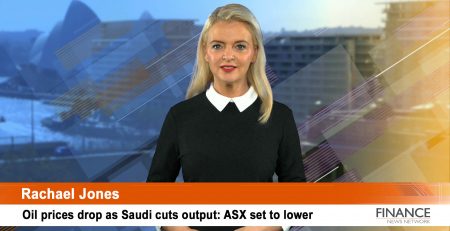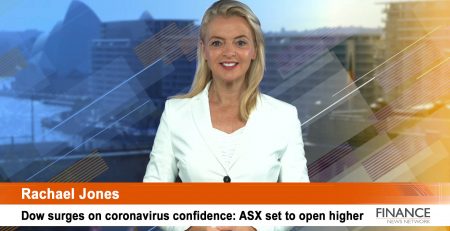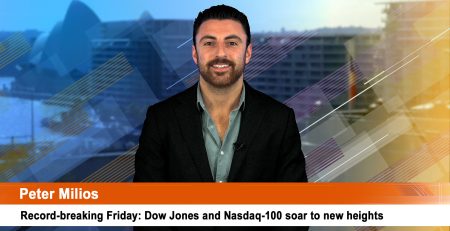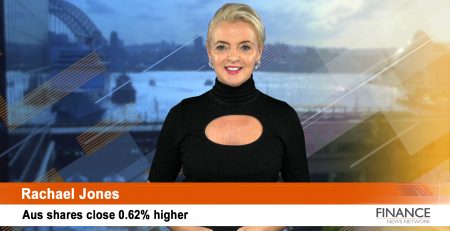Russian oil ban fuels Wall St sell-off, ASX to edge higher
Global shares were volatile amid the US banning Russian oil imports while the UK aims to do so by year-end. At a summit this week, the EU are mulling on reducing its dependence on Russian energy. Commodity prices surged and pared back gains.
Good morning. I’m Melissa Darmawan for Finance News. This is your market outlook.
The Australian sharemarket is set to edge higher after a whipsaw session around the globe.
Russian oil ban fuels equity sell-off
Wall St closed lower after a volatile session as investors continued to eye eastern Europe headlines. This comes after yesterday's steep losses which saw the Nasdaq enter bear market territory.
To give you a sense of the volatility today, the S&P 500 started flat, fell around 1 per cent by mid-morning, rallied to a 1.6 per cent gain by lunchtime then failed to keep its gains, closing lower.
US embargos all Russian oil and gas imports
The moves come after the US put a ban on Russian oil and other energy imports, the latest sanction on Russia, sending oil and commodities prices higher. Ukrainian President Mr Zelenskyy asked Western leaders to cut off Russian oil imports, as money from these exports were feeding Russia on one hand, while financial sanctions were on the other.
Before the news, investors were in “buy-the-rumour, sell-the-news” mode which saw the price of oil, the Nymex, up seven and a half per cent prior to the announcement. Then we saw the gains pared back once it was real.
The US 10-year treasury yield rose, price fell as investors switched out of the safety of government debt and put risk back on the table. It appears that economic actors, so market participants in economic activities in an economy haven’t adjusted their expectations for higher future inflation. Could this mean that they see inflation as transitory?
US imports 8% of oil from Russia YTD
As we touched on yesterday, the US imports a small amount from Russia, around 8 per cent for the year for crude oil as per Bloomberg, so from a global perspective, it’s not a lot.
However, what is the concern is if Europe decides to follow suit. Majority of Russia’s oil exports go to Europe, so there’s this balancing act because on one hand, as I touched on before, buying oil from Russia is somewhat funding Russia’s war operation, but on the other hand, there’s a need for supply to say it simply.
The added complexity from the war is sending traders in different directions, prompting this choppiness. From confidence on the economic outlook to concerns about slowing global economic growth, overarching this, the tightening of financial conditions ahead amid persistent and elevated inflation. The wall of worries continues to grow with added concerns around when oil will cause demand destruction.
LME halts trading Nickel
Meanwhile, Nickel soared with the London Metal Exchange (LME), halting trade of nickel after the price doubled to a record US$100,000 per tonne, after a short position with a Chinese tycoon went terribly wrong, according to Bloomberg.
Nickel is also an essential ingredient to making EV batteries, so higher metal prices means that car makers will need to pay more for it, and in turn the cost would likely be passed down to the consumer. You could also look at this as a proxy to what it could mean for the semiconductor chip space which is already under pressure. Given the extreme volatility, we are likely not going to hear anything around resuming Nickel trade from the London Metal Exchange till after 11th.
Fed meeting next week, ECB too
So we are a week away from a raft of central bank meetings with the US Federal Reserve and the ECB on the cards ahead of further inflation figures. One thing to remember, the Fed is still accommodative at the moment, they are still buying bonds amid persistent and hot inflation.
Figures around the globe
At the closing bell, the Dow Jones lost 0.6 per cent to 32,633, the S&P 500 fell 0.7 per cent to 4,171 while the Nasdaq closed 0.3 per cent lower at 12,796
Across the S&P 500 sectors, energy rebounded as the best performer, up 1.4 per cent on the day, up 40 per cent for the year to date. Consumer discretionary eked out a gain. A defensive feel again with the sectors in the red with consumer staples down 2.6 per cent, followed by healthcare and utilities.
The yield on the 10-year treasury note rose seven basis points to 1.84 per cent, gold rose on a firmer greenback.
Across the Atlantic, European markets closed mixed helped by banks and oil majors. Paris lost 0.3 per cent, Frankfurt closed flat, down 0.02 per cent and London’s FTSE added 0.1 per cent, BP added 5.1 per cent, Shell gained almost 3 per cent, while Rio closed 2.2 per cent lower.
Asian markets closed lower. Tokyo’s Nikkei fell 1.7 per cent to a 16-month low on fears that higher input costs are set to weigh on profit margins, Hong Kong’s Hang Seng fell 1.4 per cent as Covid-19 cases grew while China’s Shanghai Composite dropped 2.4 per cent.
Yesterday, the Australian sharemarket closed 0.8 per cent lower at 6,980 for its second straight day, dragged down by energy and material stocks amid profit-taking offsetting gains in healthcare, consumer staples and discretionary.
SPI futures
Taking all of this into the equation, the SPI futures are pointing to a 0.1 per cent gain.
Local economic news
The Reserve Bank Governor, Philip Lowe is set to deliver a speech at the Australian Financial Review Business Summit at 9.15am AEST. It’s expected that Dr Lowe is to provide the RBA’s views on interest rates amid the latest wage data and the war in Ukraine.
Keep an eye out for Westpac and the Melbourne Institute’s March consumer confidence report, following NAB’s business survey results which saw a rebound in sentiment.
Ex-dividend
There are a number of companies going ex-dividend today.
AVJennings (ASX:AVJ) is paying 1.1 cents fully franked
Accent Group (ASX:AX1) is paying 2.5 cents fully franked
Brambles (ASX:BXB) is paying 15.06 cents 30 per cent franked
Costa Group Holdings (ASX:CGC) is paying 5 cents fully franked
EQT Holdings (ASX:EQT) is paying 48 cents fully franked
Imdex (ASX:IMD) is paying 1.5 cents fully franked
Joyce Corporation (ASX:JYC) is paying 7.5 cents fully franked
Kip McGrath Education Centres (ASX:KME) is paying 1 cent fully franked
Summerset Group Holdings (ASX:SNZ) is paying 6.8362 cents unfranked
SRG Global (ASX:SRG) is paying 1.5 cents fully franked
Southern Cross Media Group (ASX:SXL) is paying 4.5 cents fully franked
Dividend-pay
There are three companies set to pay eligible shareholders today.
Ansell (ASX:ANN)
NB Global Corporate Income Trust (ASX:NBI)
Reef Casino Trust (ASX:RCT)
Commodities
Iron ore has lost 0.3 per cent to US$162.25 amid weak steel demand. Its futures point to a 0.5 per cent gain
Gold has gained $62.50 or 3.1 per cent to US$2058 an ounce, a consolidation there. Silver is up $1.20 or 4.7 per cent to US$26.92 an ounce.
Oil has gained $5.53 or 4.6 per cent to US$124.93 a barrel.
Currencies
One Australian Dollar at 8:20 AM has weakened from yesterday, buying 72.72 US cents (Tue: 73.15 US cents), 55.52 Pence Sterling, 84.11 Yen and 66.67 Euro cents.
Copyright 2022 – Finance News Network
Source: Finance News Network

